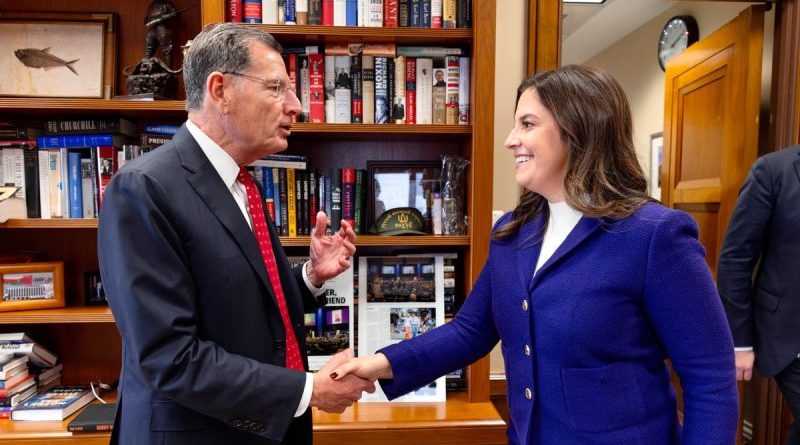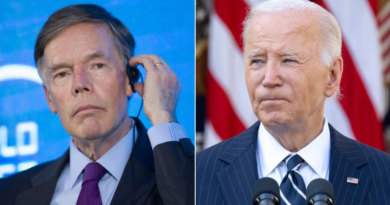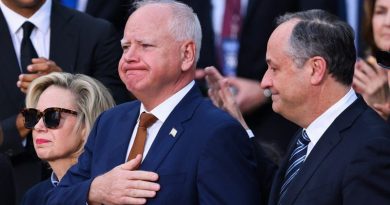Stefanik Makes Waves with Senators as Trump’s UN Ambassador Pick, Emphasizing ‘America First’ Strategy for Peace and Strength
In a move that has garnered significant attention and speculation, former President Donald Trump has nominated Representative Elise Stefanik as the next United States Ambassador to the United Nations, replacing Linda Thomas-Greenfield. Stefanik, a prominent Republican from New York, has been a vocal supporter of the America First foreign policy agenda championed by the Trump administration, advocating for a robust and assertive approach to U.S. global engagement.
Stefanik’s nomination has provoked mixed reactions within the political landscape, with supporters applauding her steadfast commitment to advancing American interests on the world stage and critics expressing concerns about her alignment with Trump’s controversial policies. Nevertheless, Stefanik has been actively engaging with key Senators to secure their support and build consensus around her nomination.
During her meetings with Senators, Stefanik emphasized the need for a strategic and principled foreign policy that prioritizes national security and strengthens America’s position in the international community. She articulated her vision of promoting peace through strength, asserting that a strong and resolute America is essential for maintaining stability and deterring adversaries.
Stefanik’s background in national security and foreign affairs, coupled with her experience serving on the House Armed Services Committee, has positioned her as a credible candidate to represent the United States at the United Nations. Her interactions with Senators have underscored her capacity to navigate complex diplomatic challenges and engage in constructive dialogue with diverse stakeholders.
One of the central themes of Stefanik’s discussions with Senators has been the importance of upholding American values and interests while collaborating with international partners to address global threats and challenges. She has underscored her commitment to advancing human rights, democracy, and the rule of law on the international stage, signaling her intent to champion these principles as America’s chief envoy to the United Nations.
Stefanik’s nomination reflects the broader shift in U.S. foreign policy towards a more assertive and unilateral approach, departing from the multilateral frameworks and alliances that have traditionally guided American diplomacy. As she continues to engage with Senators and seek their approval, the confirmation process will likely be closely watched to gauge the trajectory of U.S. foreign policy under the Biden administration.
Overall, Stefanik’s nomination as the next U.S. Ambassador to the United Nations marks a pivotal moment in American diplomacy, signaling a departure from the status quo and a recalibration of the country’s global strategy. With her focus on America First and peace through strength, she aims to assert America’s leadership role on the world stage while navigating the complexities of modern international relations.




